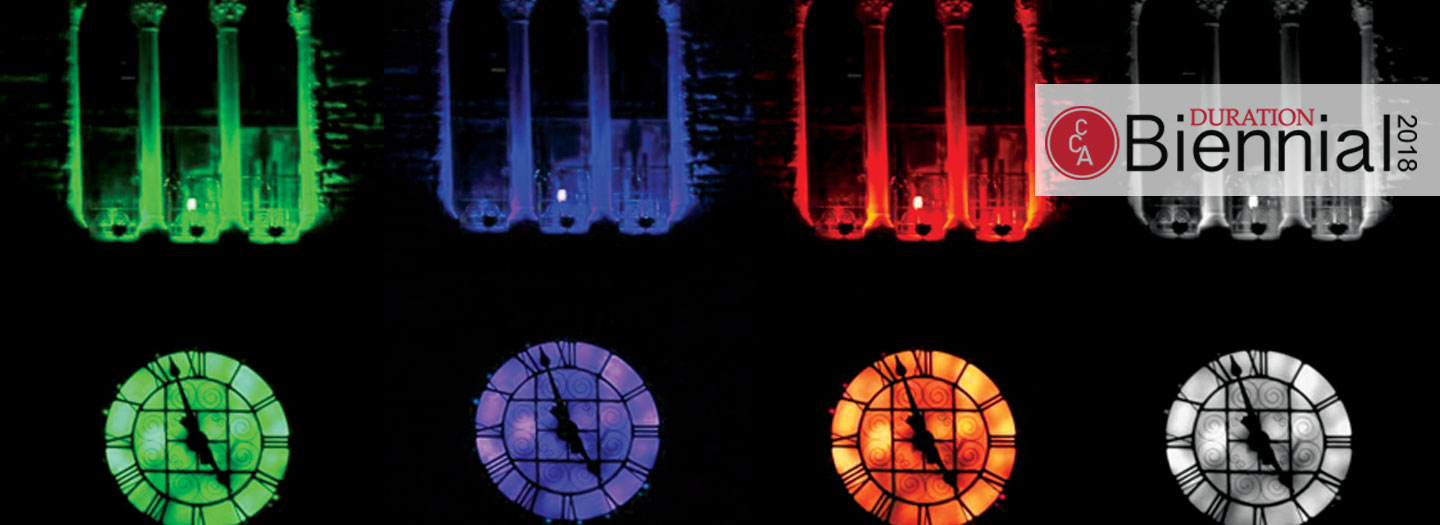
KATE GREDER WITH YASIR AHMED-BRAIMAH, JUAN FELIPE BELTRÁN, AND JOSH STRABLE
ATGC
New Media Light Installation
Two graduate students and two postdoctoral fellows from four different departments present a new media light installation titled ‘ATGC,’ on display in the clock faces of McGraw Tower, viewable from Ho Plaza and central campus.
The light installation will depict a nucleotide-by-nucleotide “walk” through genomic sequence of 32 globally representative human populations, one genome per LED light. Light will be used to illustrate the four nucleotides in DNA — A, T, G and C, each represented by color: green (A), red (T), white (C) or blue (C). Each clock face on McGraw Tower will display eight lights that blink in syncopation until genetic variation in an individual genome is encountered. When variation is detected, the syncopation of the lights will pause briefly before continuing through the sequence.
The field of genomics has begun to permeate many aspects of human life, from the potential in personalized medicine to a deeper personal history through ancestry analysis. Genomic studies inform our understanding of migration, conservation, disease, and much more. As a stable and yet dynamic medium, DNA is a template for evolutionary processes (a process that acts over millions of years) and now can be edited using CRISPR/Cas9 (a process acting in a single generation).
By (de)coding the human genome through LED lights, the project aims to illuminate the genome as the fundamental archive. ATGC is an experiment to perceive the scale, unison, and variation of the core human blueprint.
- September 28 & 29, 2018
- McGraw Tower
Kate Greder (US), Ph.D. student, Fiber Science & Apparel Design; Juan Felipe Beltrán (Columbia), Ph.D. student, Computational Biology; Yasir H. Ahmed-Braimah (Sudan/Ireland), Post Doc, Molecular Biology and Genetics; Josh Strable (US), Post Doc, School of Integrative Plant Science
Cornell Chimes; Department of Fiber Science & Apparel Design; School of Integrated Plant Sciences; the Office of Campus and Community Engagement; the Genome Aggregation Database (gnomAD)